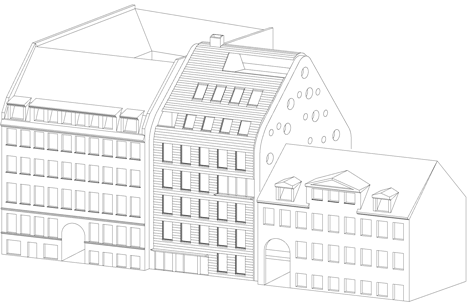Trollbeads jewellery moves into a golden headquarters by BBP Arkitekter
A layer of perforated brass wraps over the walls and around the roof of this 1960s building in Copenhagen that Danish studio BBP Arkitekter has converted into a headquarters for jewellery firm Trollbeads (+ slideshow).
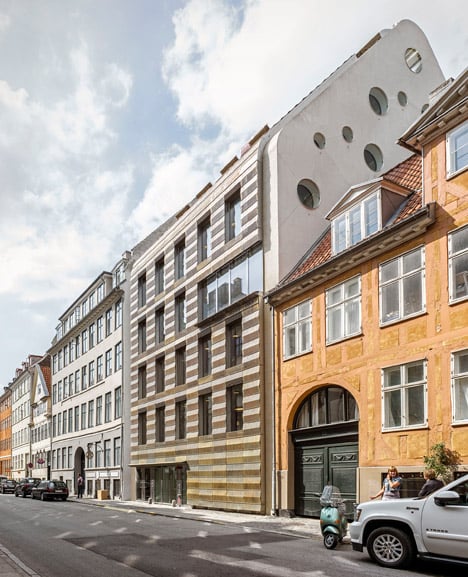
BBP Arkitekter designed Trollbeads House to sit comfortably between the 18th century buildings on either side by mimicking their scale and mass, but used modern materials to make it more contemporary.
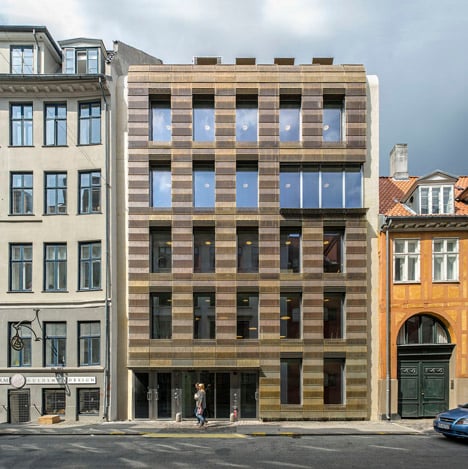
The architects removed the original 1964 facade and extended the concrete structure 2.5 metres toward the street, bringing it in line with the buildings on either side. They then added a glazed curtain wall around the front, back and roof, and covered it top-to-bottom in perforated brass shutters.
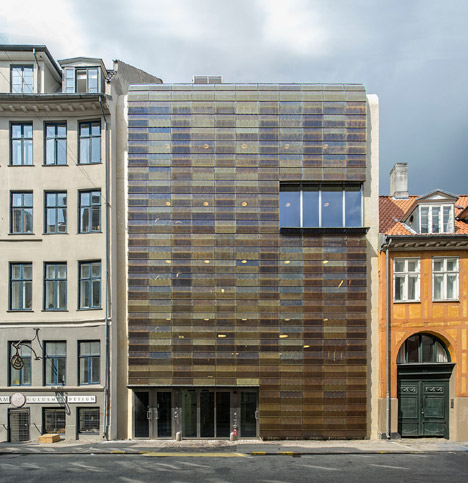
By day, half the shutters are left open, which creates the illusion of evenly spaced windows like those of the surrounding buildings. Then at night, the perforated shutters automatically close and lights come on, transforming the building into gleaming box.
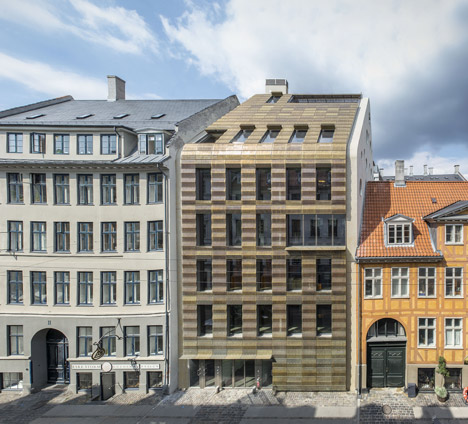
"It looks like a common townhouse that you wouldn't notice from the distance – and that is the whole point. It is not a 1:500 but a 1:5 house," architect Ebbe Wæhrens from BBP Arkitekter told Dezeen.
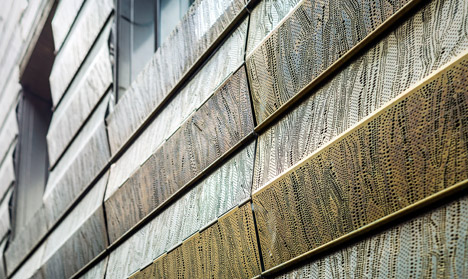
The pattern carved into the brass shutters was developed by textile designer Lene Toni Kjeld in collaboration with Wæhrens.
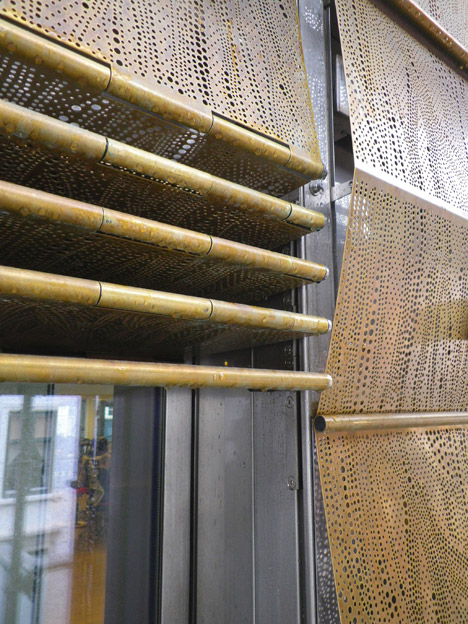
The facade and roof meet at a rounded corner, making the building seem smaller in relation to the shorter yellow building to one side. The party walls on either side have also been reshaped to follow the line of the taller building on the other side, and the exposed party wall is punctuated with small round windows in a random pattern.
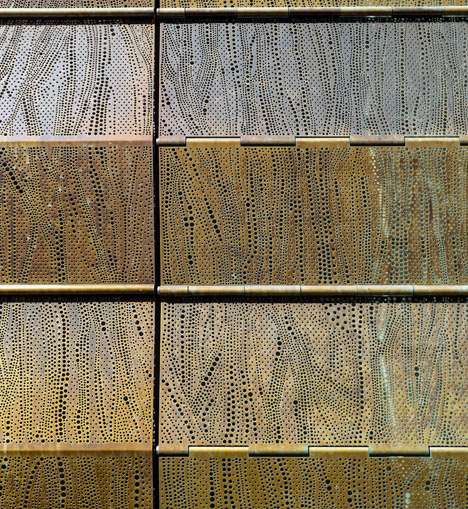
Inside, the building was arranged like an old Venetian merchant house. Goods are loaded at the ground floor, stock and offices are located in the floors above, and an apartment and roof terrace for the owner are at the top.
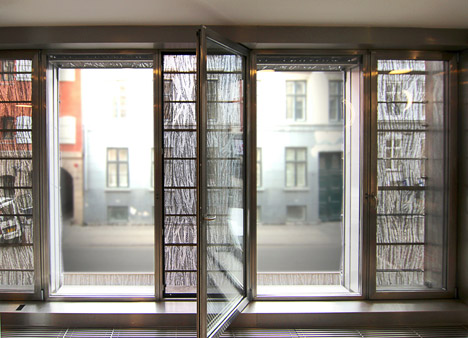
Photograph by Jens Lindhe
Here is some information from the architect:
Trollbeads House, Copenhagen
BBP Arkitekter have converted an office building dating from 1964 in the center of Copenhagen into the new headquarters for the danish jewellery firm Trollbeads, who are known for their glass and gold beads.
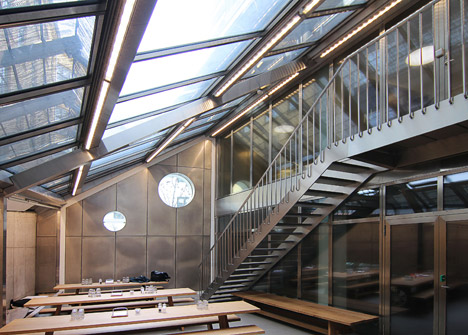
It is a high security building, organised like the old Venetian merchant houses with goods loaded safely at the ground floor, stock and offices above, and, at the highest level, a residence for the owner with a roof terrace.
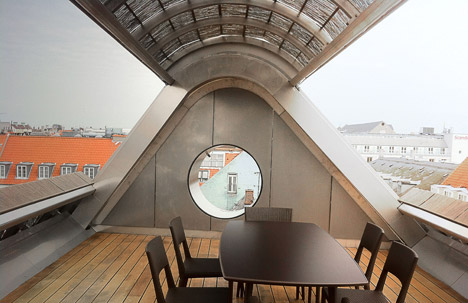
The challenge was to make a building, which respects its type as a curtain wall building, while at the same time relating to the historic houses on either side. How do you combine a modern glass house with a 18th century townhouse?
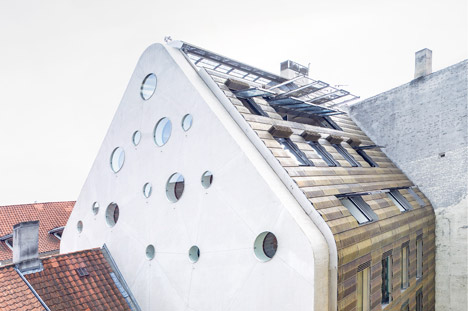
The original curtain wall was removed, the existing concrete structure stripped and extended 2.5 m toward the street, and a new skin of glass and brass covers the facade, the roof and a small courtyard at the back.
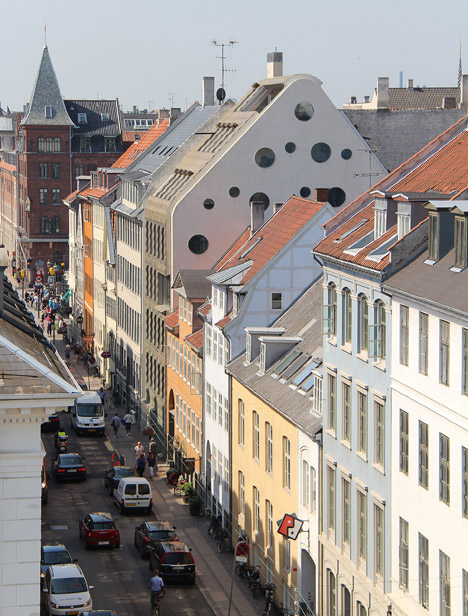
The building consists of two party walls, which have been raised and reshaped so as to follow the line of the neighbouring mansard roof. As is typical for visible party walls in the city, the exposed wall has a different logic than the facade, with small, round windows placed in a random pattern.
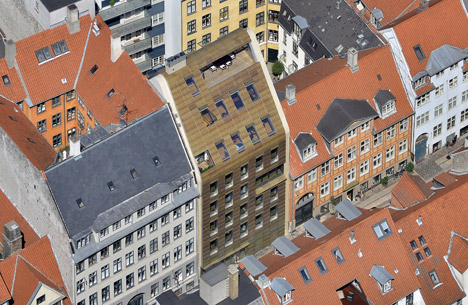
Between the two rounded party walls, a skin of glass is stretched to cover the roof and facade. On the outside a brass curtain is hung, making a kind of inverted curtain wall.
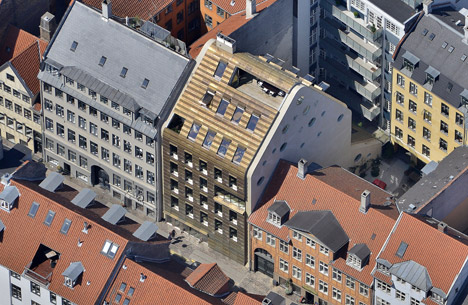
The brass curtain has three functions:
1. Every morning half of the curtain opens, so the building emulates the historic houses next to it, with repeating windows in a massive wall.
2. After working hours the curtain closes automatically, and the building is transformed into a burglar-proof vault.
3. After dark a dim light turns on inside, revealing a modern glass house behind a veil of translucent brass.
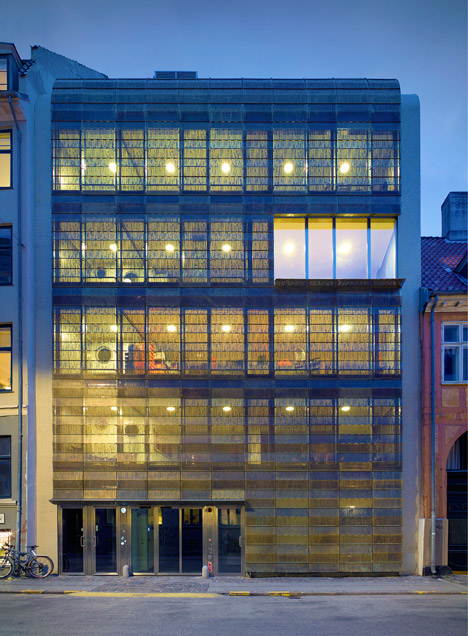
The building’s windows are fixed, but behind each of the "masonry" pillars there is a glass door, which can be opened for ventilation. The typical 1960s office building has been transformed into a golden jewellery box, which becomes a glass chest at night.
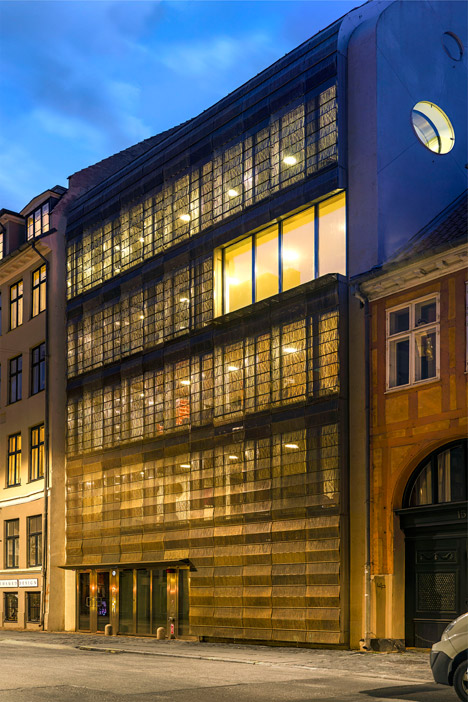
Cornices
The brass curtain is lifted permanently at the entrance, forming a canopy which aligns with the lowest cornice on the grey house next door.
At the third floor the brass curtain is folded down, in line with the roof cornice of the yellow house.
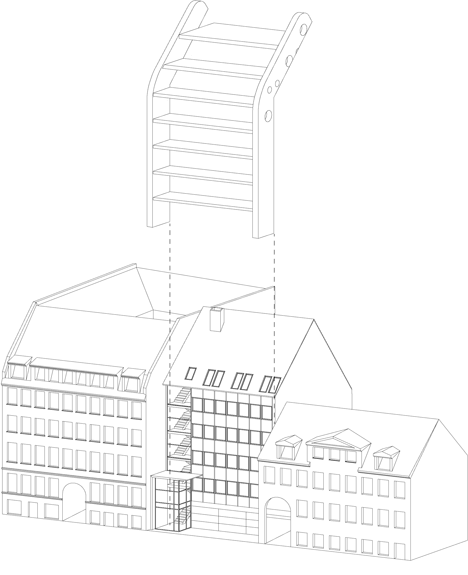
Hinges
When the curtain is closed, the only visible difference between its fixed and movable parts is the hinge.
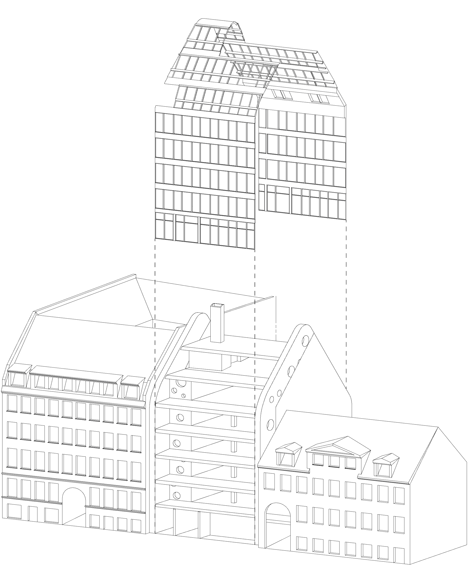
Pattern
The pattern which is carved into the brass curtain takes inspiration from a hedge of thorns guarding a treasure, and was developed by textile designer Lene Toni Kjeld together with architect Ebbe Wæhrens.
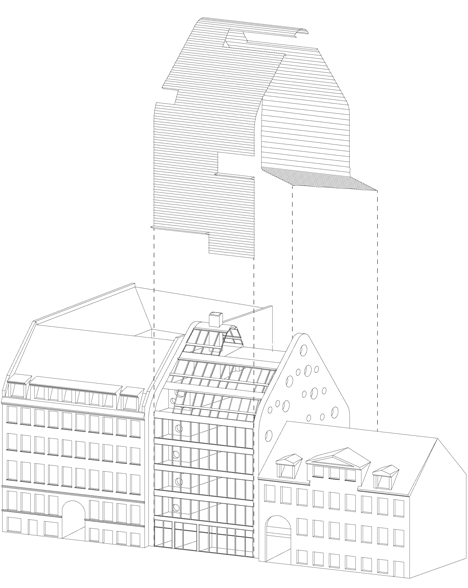
Architect: BBP Arkitecter
Architect in charge: Ebbe Wæhrens - Partner
Design team: Lars Rex Christensen, Kathrine Brauer
Structural engineering: Orbicon
Project engineer: Sigurd Østergaard Andersen
Brass curtain engineering: Art Andersen
Contractor: Kai Andersen A/S
Glass skin: Schüco Jansen - Stainless steel Janisol
Brass curtain: Tecu Gold - KME
Party wall: STO insulation + round porcelain tiles.
